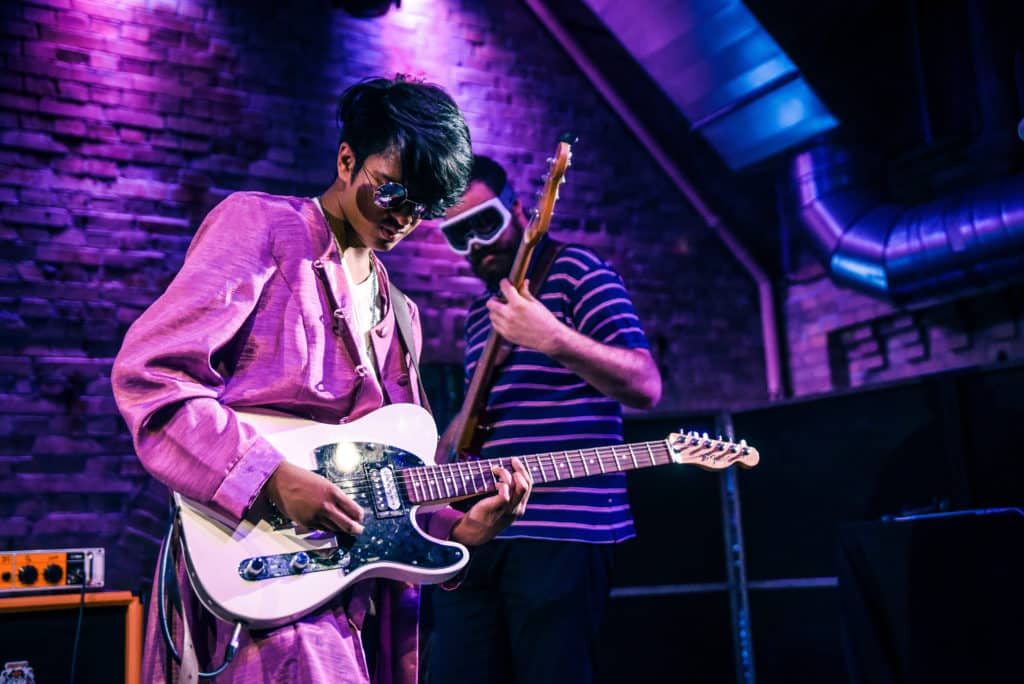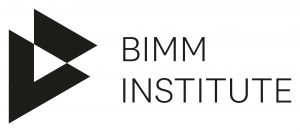BMus (Hons) Popular Music Performance
A 3 year full-time degree available at:
Establish your own exciting route in the live music sector with BMus (Hons) Popular Music Performance. This course is perfect if you’re a bassist, drummer, guitarist, keyboardist or vocalist looking to take your technical, performance and musicianship skills to a professional level.
The programme combines core topics such as performance, technique, musicianship, theory and technology to help you find and develop your niche as a performer.
You’ll be able to further tailor your course to your own artistic and career aims through our wide range of optional modules. These include a specific focus in areas such as creative performance, session skills, songwriting, composing, arranging and more. You’ll become equipped you with the skills and drive required to be successful in any musical situation.

You’ll become fully immersed in the flourishing BIMM community with plenty of opportunities to collaborate with a diverse range of talented peers. And you’ll spend a lot of time on stage, too. You’ll have the chance to play live and perform with your fellow students. Throughout these performances, you’ll receive expert guidance from our BIMM lecturers.
Our lecturers who guide you through your studies are all experienced and highly sought after professionals with invaluable expertise and experience that will help you progress through the course.
Day-to-day learning will be in large live rooms, smaller studio settings and lecture-based classrooms using our world-class facilities.
So, what are you waiting for? Start your career in Popular Music Performance today.

Course specification
Mode of attendance: Full-time
Length of course: This course is taught as a three-year course at levels four, five and six.
Awarding institution: BIMM University
Campus delivery: London, Brighton, Bristol, Birmingham, Manchester, and Berlin
UCAS code: W316
Language of study: English
Final award: BMus (Hons) Popular Music Performance
Admissions Criteria: Minimum of 2 A-levels at Grade E or above (32 UCAS points), OR BTEC Level 3 equivalent, and normally three GCSEs at a minimum grade C/4, including English Language.
Minimum requirements
Successful completion of a BIMM admissions assessment.
Minimum of 2 A-levels at Grade E or above (32 UCAS points), OR BTEC Level 3 equivalent, and normally three GCSEs at a minimum grade C/4, including English Language.
IELTS 6.0 with a minimum of 5.5 to be achieved in each band.
Progression
Graduates can progress directly to employment in the music industry in roles such as a Solo Performer, Band Member, Session Musician, or Songwriter
Course fees
Please visit our Fees page for information on access to student loans. Please note, UK students eligible for loans are able to borrow the full course fee for BIMM Music Institute degrees.
Choose your optional modules.
Our undergraduate degree courses allow you to define your own route to success via a range of optional modules. First, you’ll learn the necessary employability skills and find where you’ll fit in the industry. Then, you’ll be able to build your course according to your interests and career aspirations.
The optional modules advertised as available for BIMM Music Institute courses are subject to variation dependant on minimum student numbers and the availability of specialist resources at each college (Please refer to our terms and conditions for further detail).
Andy teaches Drums at BIMM Music Institute Bristol. He has been working as a professional musician…
Antonio currently plays bass in British Rock band Tax The Heat, who signed to Nuclear Blast…
Andrew plays bass for Hammond Funk/Acid Jazz legends, the James Taylor Quartet, appearing at gigs and…
Ben teaches Drums at BIMM Insitute Brighton. He has worked with many bands and solo artists…
Bob is an active session and touring drummer, with over 20 years experience, spanning across multiple…
Bryan Hargreaves teaches Drums at BIMM Music Institute Manchester. His list of drumming credits makes for an…
Charlie Beddoes is a bass player and vocalist with over 20 years of experience in the…
Chloe is a session singer, performer and songwriter based in Manchester. She has performed at some…
After graduating with a first-class degree in Vocals from BIMM Music Institute Manchester in 2018, and…
Any questions?
For any questions regarding our courses or if you’d like more information on how to apply to BIMM Music Institute, please contact our Enquiries Team on 01273 840 346 or email [email protected].


